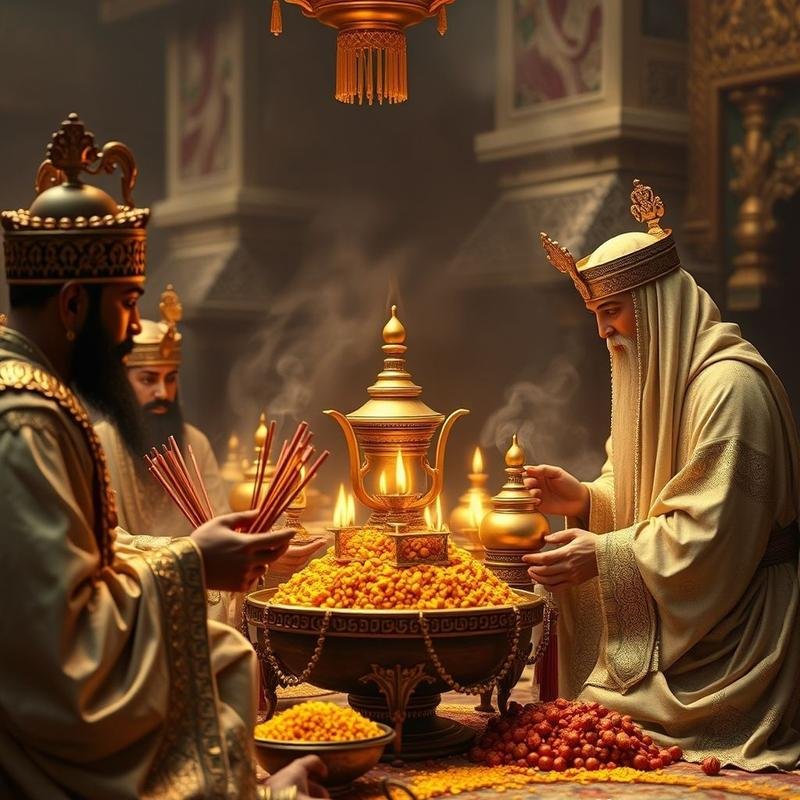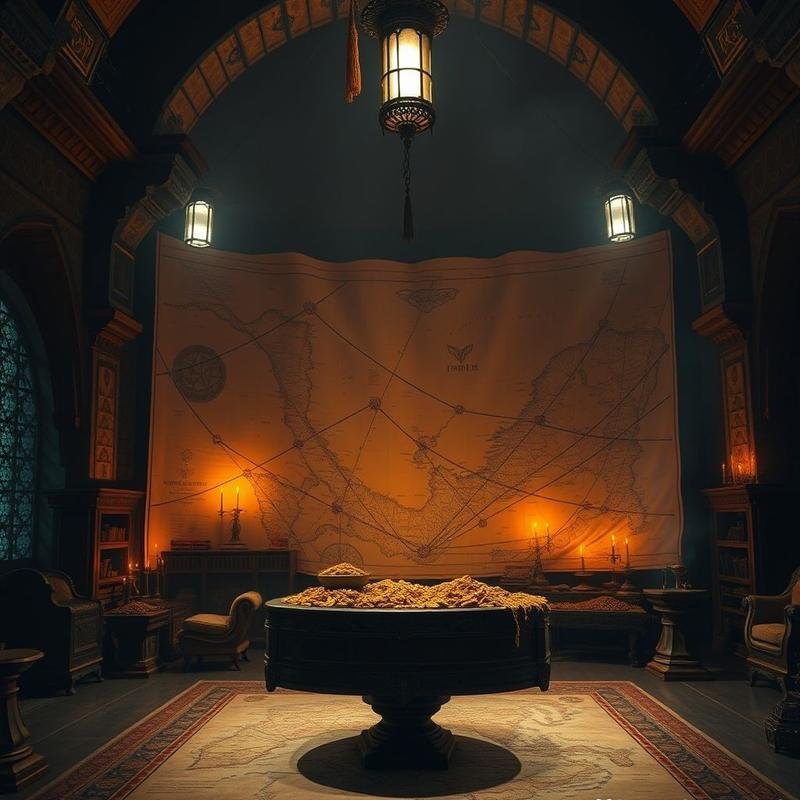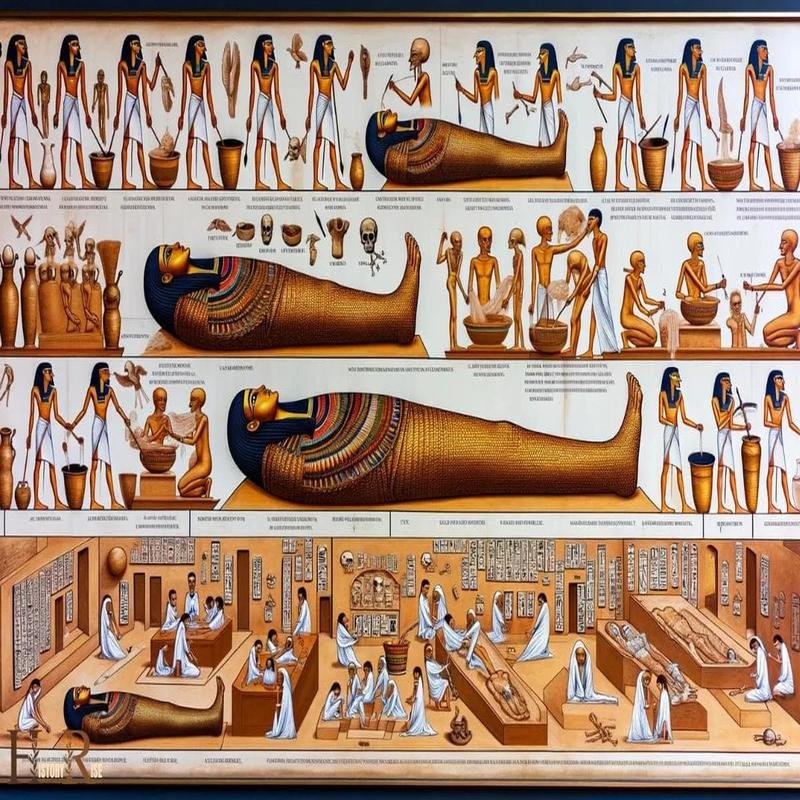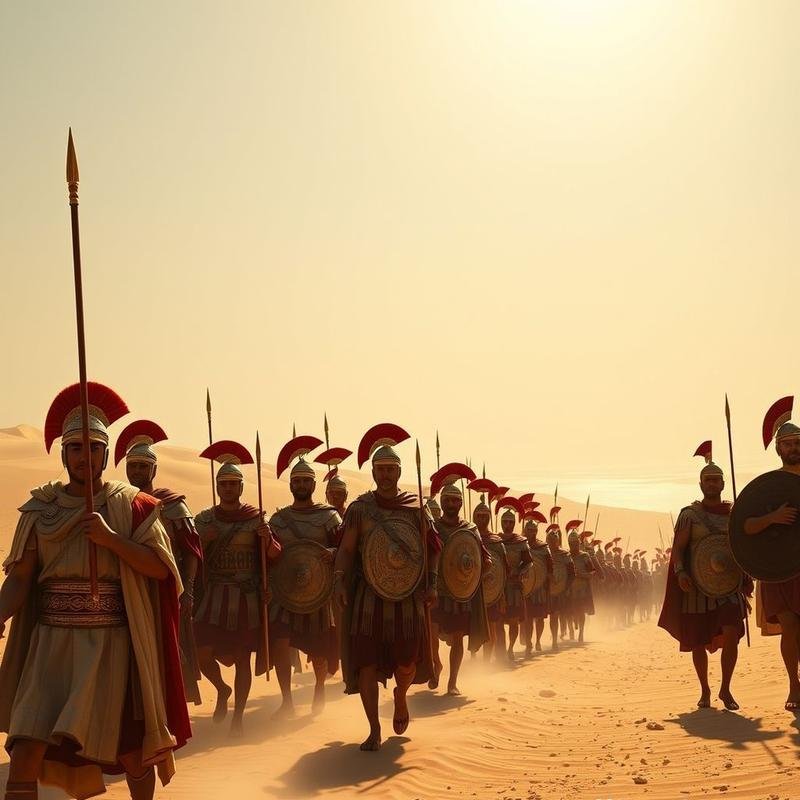Frankincense: How “White Gold” Transformed the World Before Oil!

Frankincense: The Ancient Power Behind Empires
Did you know that the origins of power struggles, the formation of empires, and even the propagation of religions can be traced back to a substance predating oil? A substance that evokes a sense of sanctity, yet ignited fierce conflicts and compelled individuals to traverse scorching deserts and turbulent oceans. How could a mere resin reshape the world map?
Before crude oil became the defining resource of the modern era, frankincense rose to prominence. More than just a fragrance for religious rituals, it served as an economic and political engine that altered the course of history. Join us on a journey through time as we uncover how this aromatic substance influenced the destinies of kings, the rise of civilizations, and how ancient trade routes paved the way for global conquest.
Share your insights in the comments below. And to ensure you don’t miss the full story, subscribe to our documentary channel.
The Aromatic Treasures of Antiquity
From the sands of the desert emerged aromatic treasures that transformed the world. Frankincense is not merely a scent; it’s a narrative that began millennia ago. We embark on a journey through southern Arabia and Mesopotamia, where the oldest artifacts reveal its sacred applications in rituals and ceremonies.
But what makes frankincense so captivating? It’s more than just a simple substance. Frankincense, also known as white gold, is extracted from rare Boswellia trees, found exclusively in Oman, Yemen, and Somalia, where harsh climatic conditions impart unique properties to this precious resin. Then there’s myrrh, derived from Commiphora myrrha, another valuable gum renowned for its antiseptic qualities and used in medicine and ancient embalming practices. And the story extends beyond these two. Agarwood, extracted from Aquilaria trees, was particularly prized in the Far East for its deep, woody aroma that captivates the senses. Even frankincense itself varies in quality, with Omani Hojari frankincense considered among the finest globally, owing to the unique environment in which it grows, which bestows upon it an unparalleled aroma.
The Incense Route: A Thoroughfare of Empires
These captivating scents, emanating from temples and braziers, were not simply inanimate offerings to the gods. Rather, they fueled a grand thoroughfare, the legendary Incense Route, which stretched like a vibrant artery across continents, intertwining the destinies of empires with threads of gold and smoke. Imagine a majestic caravan, laden with priceless treasures, traversing the vast deserts with grandeur, heading north. These caravans, which flourished under the patronage of the great Nabataean kingdom, transported the aromatic treasures of the south to the opulent ports of the Mediterranean. Petra, the enchanting rose-red city carved into the rock, was not merely a fleeting rest stop, but a thriving commercial hub where the paths of the world converged and trade of all kinds flourished.
In Rome, columns of incense ascended in magnificent temples, perfuming elegant homes, and accompanying the deceased on their final journey to the afterlife. This escalating demand transformed the incense trade into a source of immense wealth and the focus of ambitious leaders and emperors. Even Augustus Caesar, the powerful emperor, was not immune to the allure of this aromatic treasure and launched an ambitious military campaign on the Arabian Peninsula, seeking to control the sources of this sacred fragrance.
Frankincense in Religion and Ritual
At the core of human existence, frankincense resonates. In ancient Egypt, it served as a sacred means of communicating with the gods, its rising smoke carrying prayers and wishes to the heavens. To the extent that its value surpassed the luster of gold, becoming a symbol of unwavering faith. In Mesopotamia, towering temples rose, their fragrant incense dedicated to Inanna and Ishtar, invoking fertility and prosperity. And within the heart of the Jewish Temple, the incense composition was a sacred secret, its precise details meticulously inscribed in the Book of Exodus. In India, agarbatti rises in daily Hindu rituals, purifying the surrounding atmosphere and attracting the flow of positive energy. And in the solemn silence of Buddhist temples, incense aids in calming the restless mind and fostering deep meditation.
From White Gold to Black Gold: A Shift in Power
From temple prayers to spiritual meditations, incense has consistently accompanied humanity on its quest for meaning. But time progresses, and with it, the balance of power shifts. In the first century AD, the value of frankincense exceeded that of gold itself, but by the twentieth century, a new narrative began to unfold on the horizon. In the vast sands of the Arabian Desert, a black liquid emerged, displacing frankincense from its entrenched throne. In 1938, oil was discovered in substantial commercial quantities, heralding the dawn of a new era with all its promises and challenges. While the ancient incense routes connected civilizations slowly and steadily, oil forged a complex global network of pipelines and giant tankers. The crises of the 1970s granted oil-producing countries unprecedented influence on the international stage, but with the advent of inexpensive synthetic alternatives, the allure of authentic frankincense gradually began to diminish.
The Enduring Legacy of Frankincense
However, even in the age of oil, the magic of frankincense has not faded. While oil redrew the maps of influence, frankincense retained its captivating presence in culture and economy. Luxurious oud is still traded as a valuable investment, and Omani Dhofar steadfastly maintains its legacy as the cradle of frankincense. This trade has illuminated countless tales and settled deeply within our collective memory. And as ships sailed in search of fragrant frankincense treasures, the arts of navigation flourished, the edifices of empires rose, and fierce wars were waged, leaving the scent of frankincense lingering in the pages of history, an eternal witness to a world shaped before the discovery of oil.
Ultimately, frankincense reveals a story of shifting power dynamics and how the trade in sacred perfumes influenced empires, religions, and routes of exploration, long before the dominance of oil. It serves as a reminder that fortunes are ephemeral, but the impact of culture and history endures.
Now that we’ve explored how the frankincense trade shaped ancient power dynamics and cultural exchanges, what lessons can we glean from this compelling history? Share your thoughts in the comments.
Watch the Documentary








